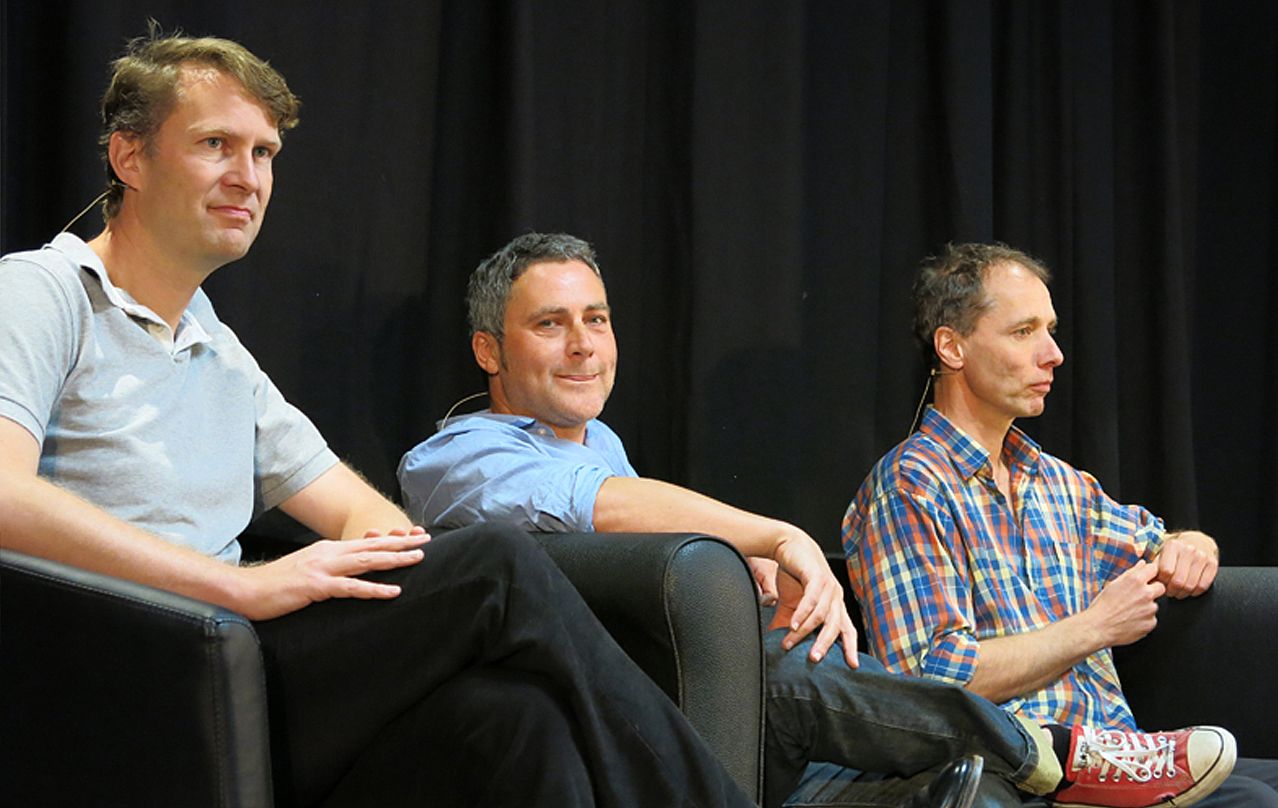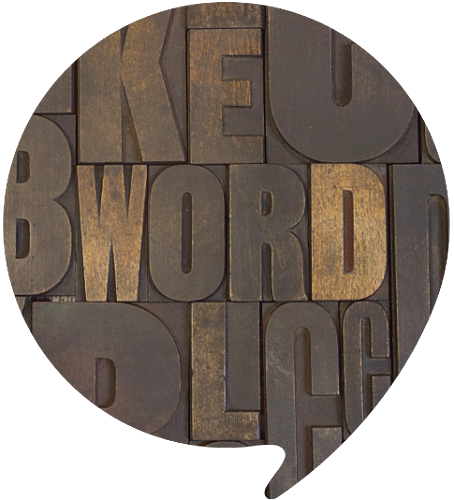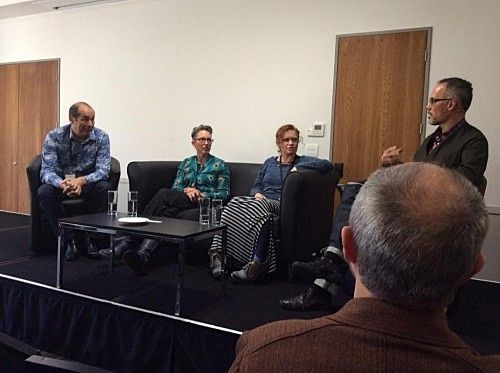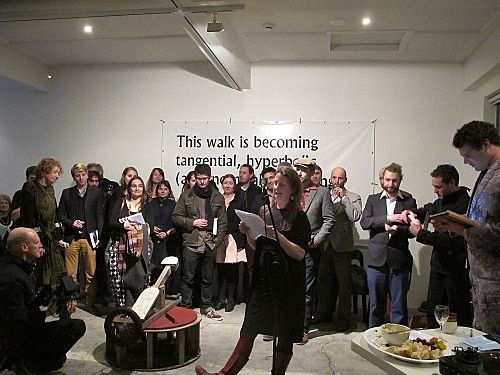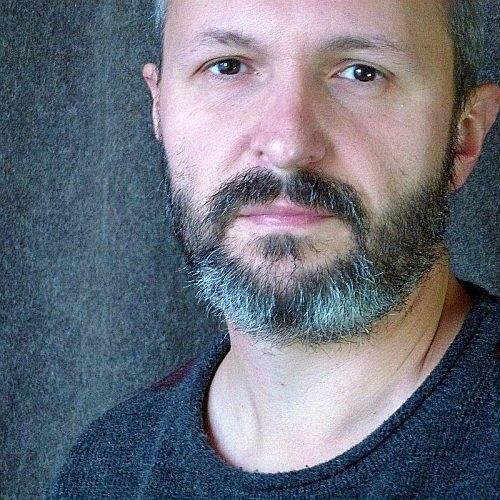'Make my words worth something': the Christchurch Writers and Readers Festival
At the Christchurch Writers and Readers Festival, Giovanni Tiso experiences sessions that resonate with the city's desire to rebuild, to create, and to respond to the call to 'make words worth something'
I never knew Christchurch before the earthquakes. My first visit was in 2011, for the Arts Festival, with tickets my partner gave me for my birthday. That was on the 20th of February. Then came the 22nd, and the fact that just six months later the festival went ahead – albeit with a reduced programme – is testament to the value that many in the city continued to give to cultural work and its role in the reconstruction, as well as to their determination and skill.
Three years later I returned to find a city still broken, and that desire intact. Witnessing the continuing, raw extent of the destruction in and around the former red zone, which no still picture or televised report can quite convey, was very confronting, but that difficult context charged Word Christchurch – the local writers and readers festival, held every two years – with a surplus of meaning.
I’ve never quite been able to make up my mind, as a reader, about these festivals and their utility. To what extent does the basic and perfectly reasonable notion of getting artists to talk about their craft devolve into a commercial circus centred on celebrity? Being in two minds about the answer, I haven’t attended many such events here in Wellington. But Christchurch adds questions of its own. What can hosting festivals of this kind bring to a city in transition? How will the encounter affect the intellectuals who visit? More broadly, more significantly: what does it mean to discuss narrative in a community that is trying to write a new story for itself?
Thus NoViolet Bulawayo’s reflections on biographical fiction, adopted names and the memory of place were enriched by being articulated at this particular festival. Her thoughtful, measured delivery, the language in which she spoke – she described it as ‘english with a small e’, the predominantly oral tongue of an outsider – fit particularly well with the proceedings. I wasn’t aware that her own name is one she chose as she entered adulthood: Violet, after the mother she never knew but wanted to carry with her, hence NoViolet, meaning literally ‘with Violet’, and Bulawayo, the name of the second largest city in her native Zimbabwe. It resonated.
Ta Tipene O’Regan’s wonderful excursusinto the origin myths of Polynesia, and of South Island Māori in particular, and how the lands of Te Waipounamu were moulded and stomped upon by demigods to acquire the still-changing shape they have today, also took on a special significance. O’Regan’s consummate oratorical performance, in which he fully invested his aged body as he leaned on his famous tokotoko, rivalled and paralleled one of the highlights of the festival in the session starring US poet Anis Mojgani. This was the most exhilarating poetry reading I have attended since having the good fortune of seeing the late Nuyorican poet Pedro Pietri on a tour of Italy two decades ago. But it was not just the energy and skill of the performance; the words, the poetry, meshed perfectly with the occasion, perhaps none more so than this cry, from ‘Shaking the dust’:
Make my words worth something.
Make this more than just another poem that I write,
More than just another night that sits heavy above us all.
It is difficult to find the measure of these events, to know what you can afford to miss (not to overcharge yourself, or overspend). So, for instance, I figured Kristin Hersh would probably come back some other time, and that Elizabeth Knox’s inaugural Margaret Mahy lecture was going to be recorded by Radio New Zealand, so I could listen to it over the summer. In the event, I spent a considerable portion of my Sunday being told by people how much of a fool I had been to miss the latter. (I believe them.)
But you can only take in so much, and report on what you can. Besides, I’m not unhappy with my choices. These included a fascinating, if necessarily inconclusive, session with Tina Makereti, Hinemoana Baker and Brian Morris on the current state of Māori literature, which posed questions of value beyond the commercial and probed the notion of what is popular (how do we support the production of literature by Māori and in Māori, and how do we promote its study when universities will retort that such course don’t attract enough students?); and Steve Braunias’ conversation with Ben Uffindel, which was bloody funny. (Favourite throwaway moment: when Uffindel greeted the end of Braunias’ long, effusive introduction with a deadpan: ‘thanks, Dad’.)
My programme was bracketed by what were probably the most topical sessions of the festival with regards to non-fiction: the panel with Nicky Hager, Richard King and Luke Harding on ‘Secrets, spies and free speech’ – which over-promised somewhat with its very ambitious brief, as the free speech section was not quite got into, but allowed Hager and Harding in particular to flesh out their ideas concerning what constitutes a ‘public good’ in reporting, drawing the strongest contrast between the motivations of Snowden, who believes in secrecy and privacy, as well as reducing collateral damage, and Assange – and ‘Red Zones, green frames and blueprints: Rebuilding Christchurch’, which, along with the launch of the book Once in a Lifetime, was smartly scheduled as an unofficial closing ceremony. These last two, connected events condensed the surplus of meaning of the festival, its uniqueness.
Once in a Lifetime: City-building after Disaster in Christchurch was conceived and produced by Freerange Press, a small local publishing collective. I should note by way of disclaimer that I have a piece in the book, but then it’s a case of who doesn’t, since one of the impressive aspects of the project is that there are so many contributions – 55 written essays and 39 visual ones – from a very broad and diverse range of authors. At over 500 pages, it is a strikingly ambitious book, almost to excess, but then city-building is a very large problem. The breadth of perspectives was well represented in the panel chaired by Barnaby Bennett: a feature writer in Rebecca Macfie, author of Tragedy at Pike River; researcher Dr Suzanne Vallance, who spoke about models of participation and consultation; co-editor and co-founder of Gapfiller Ryan Reynolds, who spoke and has written beautifully about the ‘desire for the gap’ as a space onto which to project new ideas and aspirations; and Raf Manji, a councillor in charge of the city’s finances. It was, like the book itself, a blueprint of the kind of discussions that need to be had. If the panel and how it was received by the packed room are any indication, Once in a Lifetime will become a significant tool with which to think again about the task and find new forms of engagement.
Sitting in the audience as an outsider – someone who hasn’t experienced neither the disaster nor its aftermath except as a reader or a tourist – I was struck by the many different ways in which Christchurch has become a microcosm of the country and a laboratory, in ways both good and bad. It is the city where we have experimented with suspending democracy, but also the one whose citizens are coming up with new ways of thinking what it means to form communities. Nowhere else in Aotearoa the poet’s call to ‘make words worth something’ applies with more urgency. We should listen to it.
